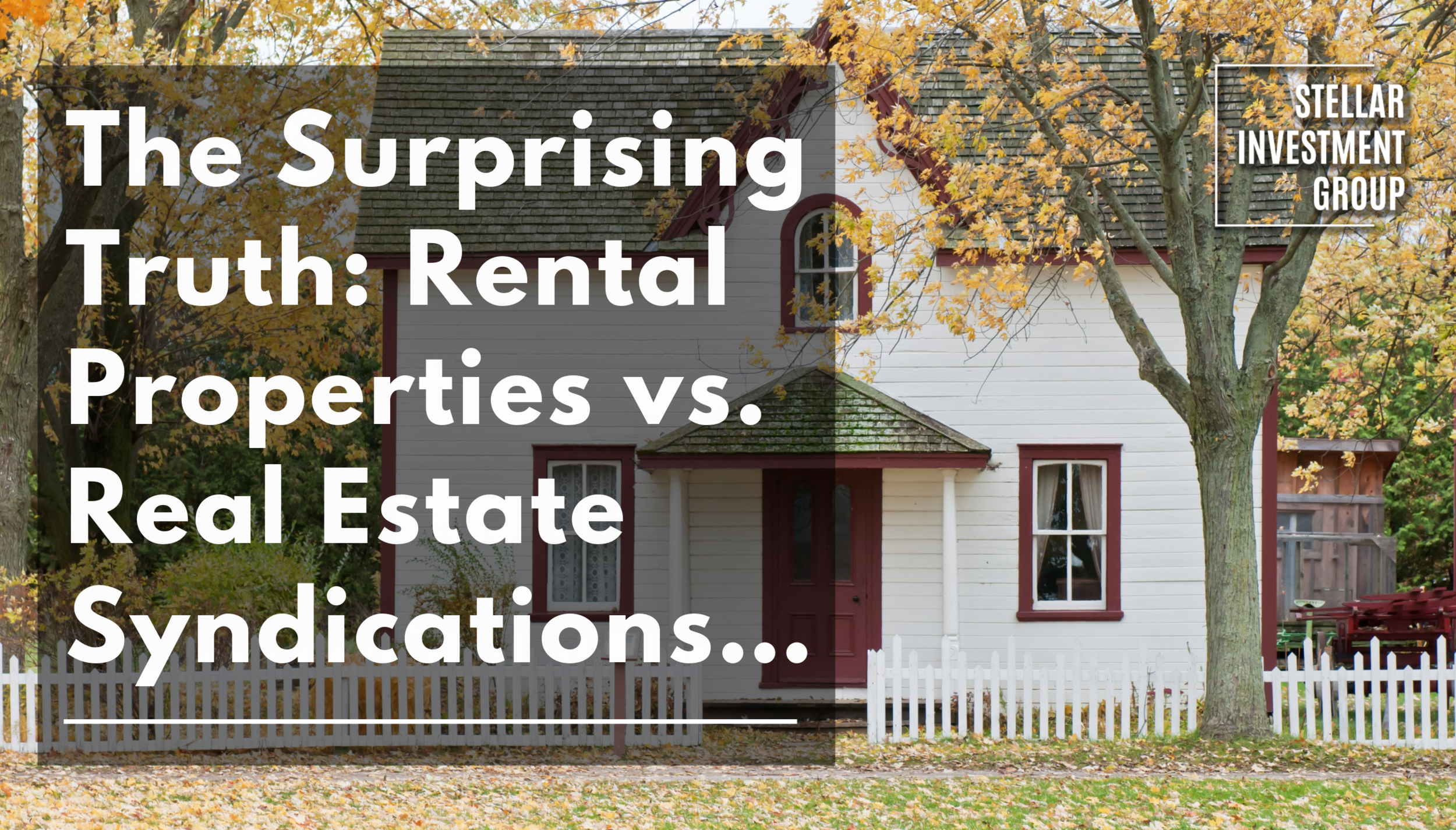The Surprising Truth: Rental Properties vs. Real Estate Syndications...
/If you’ve ever thought about investing in real estate, there’s a common question most investors ask. Should you buy rental properties on your own? Or should you invest in other people’s deals (i.e. syndications)? What are the pros and cons of both?
Here’s a look at the returns, risks, and potential liabilities…
Economies of Scale
The biggest difference between these two investment strategies is economies of scale. Let’s say for the sake of simplicity, your first rental property is a duplex. You have two units under one roof. If it costs $30,000 to replace the roof, that equates to $15,000 per unit. As a comparison, if you invested in a 100 unit building, there is a huge difference in economies of scale. Everything from lawn care to property management is far less expensive on a per-unit basis. Economies of scale can have a significant positive effect on your returns and cashflow.
Tax Benefits
When it comes to tax benefits, investing on your own may have an advantage. When you are the single owner of a property you can choose to sell in a 1031 exchange or sell your property at an opportune time. Yet, larger syndications have tax benefits that simply aren’t possible with smaller, personal rental properties. For instance, larger buildings can reasonably do cost segregation studies and accelerate depreciation. These strategies can save investors millions in taxes when done correctly. Also, some operators offer 1031 exchanges if it’s clearly stated in their business plan.
Risk
Investments in personal rental properties have a far greater risk than investing passively in a syndication. When you own property yourself, you are directly responsible for the mortgage, insurance, property taxes, and expenses. That means if your tenant moves out, you’ll need to cover those expenses out of your pocket. Maintenance expenses on smaller properties can be unpredictable and very large compared to gross income.
On the other hand, when you invest passively in a larger 100+ unit building, the expenses become predictable. It’s unlikely that you’ll need to contribute additional cash to cover maintenance issues. AND unlike a duplex, it’s very unlikely that 50% of your tenants will unexpectedly move out or stop paying rent.
Time
A passive investment in a syndication is truly passive. Legally, they are required to be. On the other hand, when you buy your own rental properties, it’s possible you’ll get calls in the middle of the night. You may need to deal with the stress of maintenance issues, leaks, tenant complaints, and other unforeseen problems. Working with the right management company takes time. And major problems and decisions are always the owner’s responsibility. As your portfolio grows, asset management can turn into a full-time responsibility.
Returns
With all the headaches and maintenance that come with owning your own properties, you’d expect the returns to be better, right? The truth is that it really comes down to your market, your experience, and a little bit of luck. When you invest in smaller properties, market conditions play a huge part in your ability to achieve high returns. Typically there is speculation or a dependency on future appreciation when buying smaller properties.
On the other hand, real estate syndicators are typically able to predict and control their target returns for investors. Properties with 100+ units are like businesses. And when you know how to run these properties well, you can predictably control their value. On our podcast, we’ve interviewed operators all over the country and the majority of them have a 2X equity multiple for investors. That means they expect to double their investors’ money by the end of a hold period. Those returns are not always possible with small, personal rental properties.
Personal Liability
When buying a personal rental property, you should always form an LLC. But even with an LLC there are liabilities. A tenant could sue, a pedestrian could fall on your sidewalk and get hurt. When you are the sole owner, you are at risk of litigation. This is not the case when you invest passively in a syndication.
In addition, when you invest in a syndication, you are not responsible for signing on the loan. If something were to happen, it means the bank would not come after you or your personal property. These liabilities alone are why many investors prefer real estate syndications to owning their own properties.
So, Which is Better?
When it comes to investing in real estate there are many things to consider as an investor. Would you rather be an active or passive investor? Your answer may depend on your appetite for risk/personal liability, your available time, and cash reserves you’re willing to part with.
On the other hand, when it comes to a no-fuss, cash flowing investment with strong returns, real estate syndications may be right for you.

